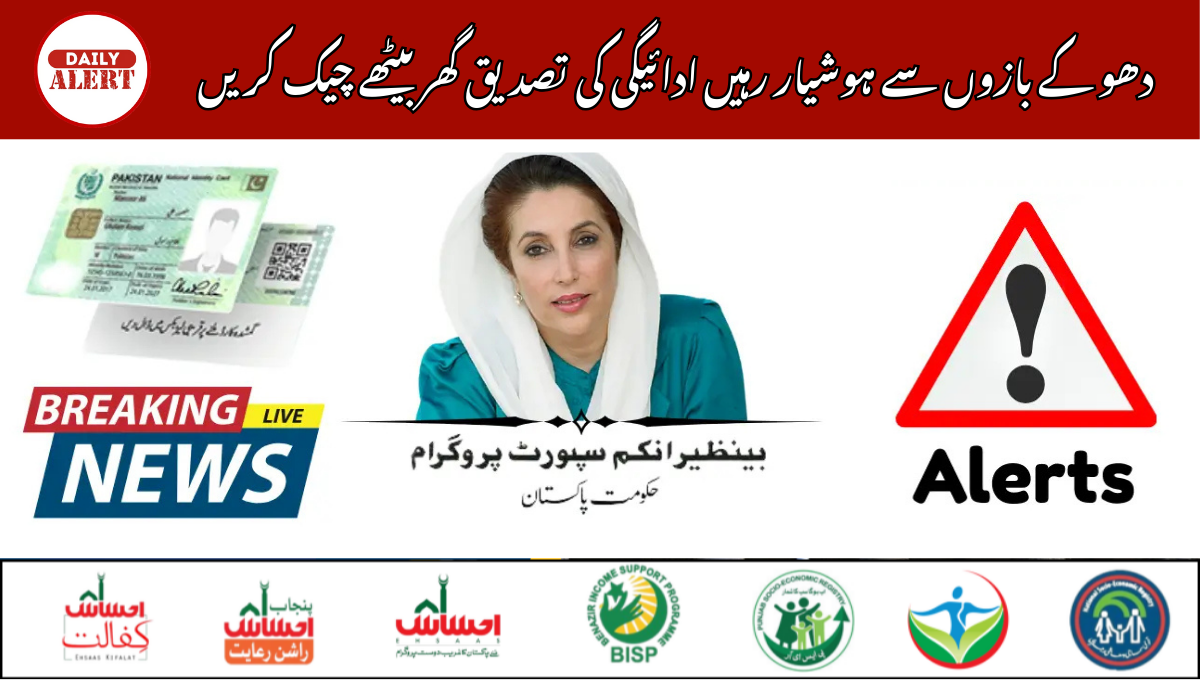The Benazir Income Support Programme (BISP) and Ehsaas Program continue to serve as lifelines for millions of low-income families in Pakistan. However, with growing digital dependency in 2025, fraudulent SMS scams have become a major concern for beneficiaries. Many citizens report receiving fake messages claiming to confirm cash transfers or demanding personal details in exchange for funds. Officials have repeatedly warned that such messages are part of widespread scams designed to exploit vulnerable communities.
Understanding the rising threat of SMS scams
Over the past few years, BISP and Ehsaas initiatives have expanded digital channels to provide transparency and convenience. Unfortunately, scammers have mirrored these methods to deceive people. They often use unofficial numbers, misleading links, or calls impersonating government representatives. According to digital safety experts, the majority of these scams ask recipients to share their CNIC details or transfer mobile balance under the false promise of cash assistance. This manipulation creates fear and confusion, particularly in rural areas where digital literacy is still low.
Government warnings and official guidelines
The BISP Secretariat and Ehsaas authorities have emphasized that no official payment information is ever shared via random mobile numbers. Instead, the official SMS service operates only through the number 8171. Citizens are advised to rely exclusively on this code when checking their eligibility or receiving updates. Furthermore, the government has set up secure online portals and mobile applications where beneficiaries can verify their payment status without risk of fraud.
How to safely check BISP and Ehsaas payments online in 2025
Beneficiaries in 2025 have multiple safe options to confirm their funds. The official 8171 web portal remains the most reliable method, allowing users to enter their Computerized National Identity Card (CNIC) number and instantly receive accurate updates on eligibility and payment schedules. In addition, the BISP mobile app, introduced as part of Pakistan’s digital inclusion policy, provides secure logins and real-time notifications. This shift to authenticated online platforms ensures that citizens no longer need to depend on random SMS alerts or middlemen for updates.
Impact on vulnerable communities
The persistence of scams highlights the need for stronger awareness campaigns. For families relying on social protection programs, even small delays or misinformation can cause financial stress. Analysts argue that digital literacy initiatives must work alongside welfare distribution to build trust and reduce fraud. By combining financial aid with education about safe online practices, the government can better protect citizens from exploitation.
Future outlook for digital safety in welfare programs
As Pakistan continues its digital transformation, safeguarding public welfare programs will remain a priority. BISP and Ehsaas authorities are expected to strengthen cybersecurity systems and expand awareness drives in 2025. Experts suggest that future strategies could involve artificial intelligence monitoring tools to detect suspicious SMS activity and automated alerts to beneficiaries. With continuous improvements, the government aims to build a safer environment where citizens can access aid without fear of scams.
Conclusion
BISP and Ehsaas programs remain vital for millions of households, but digital scams threaten their effectiveness. By relying on official portals, the 8171 SMS service, and secure applications, beneficiaries can protect themselves from fraud. In 2025, the focus is not only on distributing financial aid but also on ensuring digital safety. A stronger partnership between government institutions, technology experts, and citizens will be essential to secure the future of social protection in Pakistan.
Also Read More: Step-by-Step Guide to Apply for CM Punjab’s Solarization Program – Save Upto ₹10 Lakh

